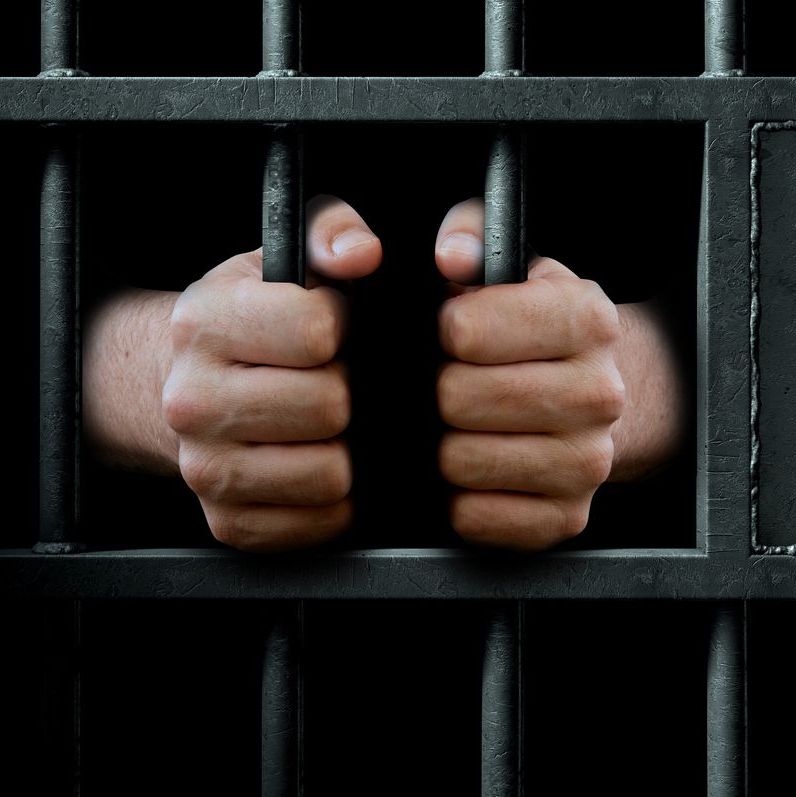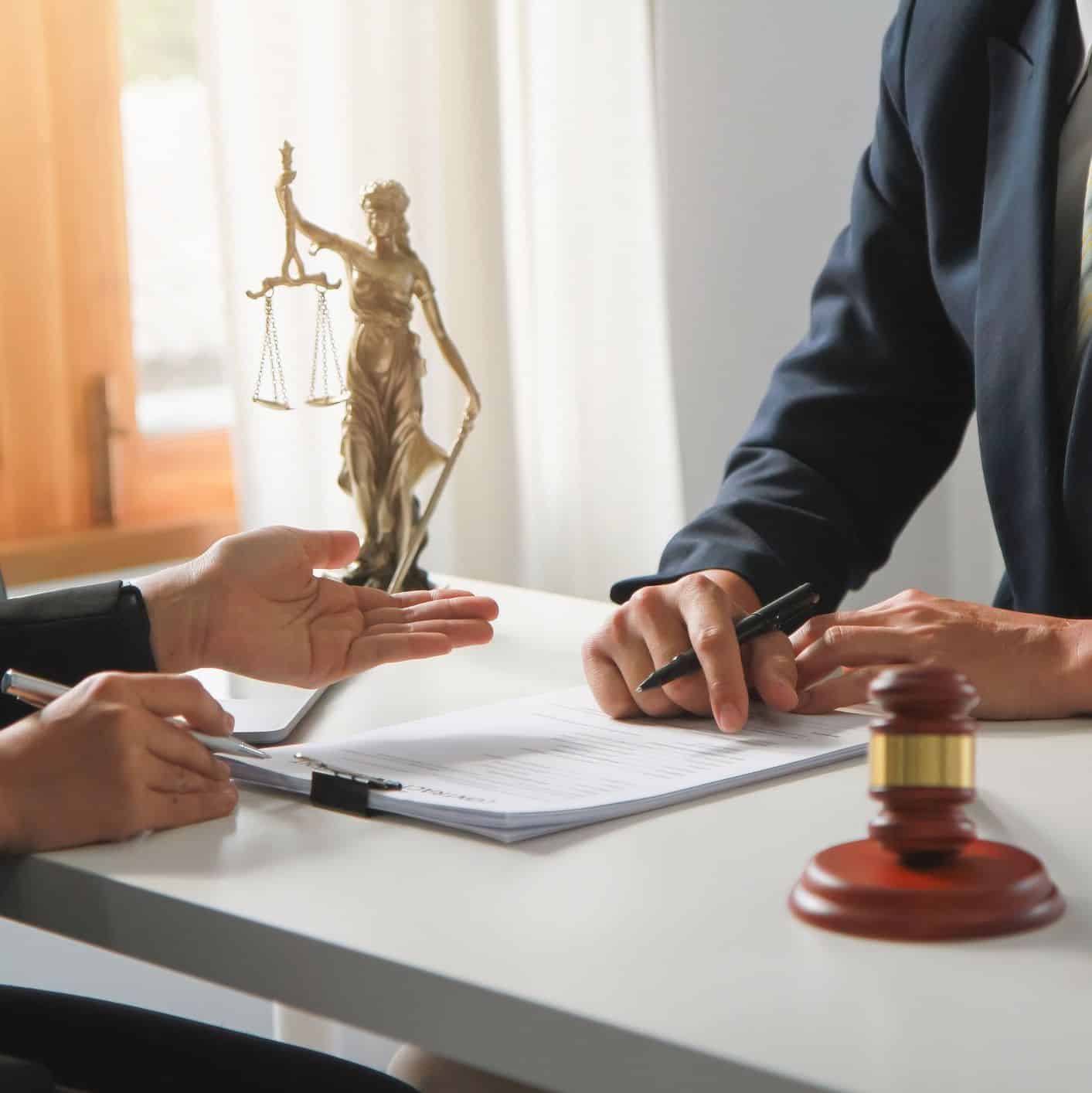Wrongful Convictions Attorney
If you or a loved one has been wrongfully convicted of a crime, you know how devastating the consequences can be. But there is hope. If you’re ready to fight back, call Gressley & Donaldson today. We’re ready to help you evaluate your options for getting your freedom back.
Causes of Wrongful Convictions
The integrity of our justice system hinges on its ability to deliver fair and accurate verdicts. However, wrongful convictions remain a disturbing reality, often leading to the devastation of innocent lives and eroding public trust in legal processes. Understanding the root causes of these miscarriages of justice is not only crucial for those wrongfully accused but also for strengthening the legal system as a whole.
- Eyewitness Misidentification: Often considered a reliable source of evidence, eyewitness testimonies can be surprisingly fallible. Factors like stress, lighting conditions, and the presence of a weapon can severely impair an eyewitness’s ability to accurately identify a suspect. Additionally, suggestive police procedures can inadvertently influence eyewitness memory, leading to false identifications.
- False Confessions: Counterintuitively, innocent individuals sometimes confess to crimes they didn’t commit. This can result from intense psychological pressure during interrogations, a lack of understanding of one’s rights, or a misguided belief that compliance will lead to a more favorable outcome.
- Inadequate Legal Representation: The quality of legal representation can significantly influence the outcome of a trial. Defendants with under-resourced or inexperienced attorneys are at a greater risk of wrongful conviction, especially in complex cases where expert testimony and extensive investigation are crucial.
- Police and Prosecutorial Misconduct: Although most law enforcement officers and prosecutors are dedicated to upholding justice, misconduct does occur. This can include suppressing evidence favorable to the defense, coercing witnesses, or engaging in unethical investigative practices.
- Forensic Errors and Misconduct: Forensic evidence, often perceived as infallible, is subject to human error and misconduct. Misinterpretation of evidence, lab errors, or even intentional tampering can lead to wrongful convictions.
- Jury Bias and Tunnel Vision: Juries, tasked with the crucial role of determining guilt or innocence, can be swayed by biases or may develop tunnel vision, focusing solely on evidence that supports a preconceived notion of the defendant’s guilt while disregarding contradictory information.
Wrongful convictions are a multifaceted problem that undermines the foundation of our legal system. As legal professionals, it is our duty to vigilantly guard against these errors. Through diligent representation, continuous education on the fallibility of certain types of evidence, and advocating for systemic reforms, we can strive towards a more just and reliable legal system. Remember, justice served accurately reinforces the very pillars of our society.
Legal Reforms: Paving the Way for a More Just System
Wrongful convictions not only shatter the lives of the innocent but also represent a systemic failure in delivering justice. Implementing key legal reforms is essential to prevent such miscarriages of justice and to bolster public confidence in our legal system. Here are some crucial reforms that can significantly reduce the likelihood of wrongful convictions:
- Improving Eyewitness Identification Procedures: Reforming eyewitness identification methods is critical. This includes adopting practices like ‘blind’ lineups, where the officer conducting the lineup doesn’t know the suspect’s identity, to prevent unintentional cues. Using sequential lineups, where witnesses view one suspect at a time, reduces false positives by preventing comparative judgments.
- Recording Interrogations: Mandatory recording of interrogations, from start to finish, ensures transparency and accountability. It helps prevent coercive or unfair interrogation tactics and provides an accurate record of the proceedings, protecting both the suspect’s rights and the integrity of the investigation.
- Enhancing Defense Counsel Quality: Ensuring that all defendants have access to competent and adequately resourced legal representation is fundamental. This involves increasing funding for public defender offices and setting higher standards for attorney performance, especially in capital and other serious felony cases.
- Prosecutorial Accountability: Strengthening mechanisms to hold prosecutors accountable for misconduct is essential. This can include establishing independent oversight bodies to review claims of misconduct and enforce penalties, as well as creating systems for reporting and tracking such instances.
- Strengthening Forensic Science Standards: Forensic science must be based on sound scientific principles with clear standards for evidence testing and interpretation. Implementing rigorous accreditation systems for forensic labs and requiring ongoing training for forensic scientists can greatly reduce errors.
- Addressing Racial Disparities in the Criminal Justice System: Systemic racial biases contribute significantly to wrongful convictions. Efforts must be made to understand and dismantle these biases, through reforms such as implicit bias training for all criminal justice professionals and ensuring diversity in juries.
While no system can be perfect, these legal reforms represent crucial steps towards minimizing wrongful convictions and enhancing the fairness of our criminal justice system. As advocates for justice, it is our responsibility to champion these reforms, ensuring that the scales of justice are balanced for all.

The Impact of Wrongful Convictions
The impacts of wrongful convictions extend far beyond the legal realm, profoundly affecting the personal and emotional lives of those involved. Individuals wrongfully convicted face an unimaginable personal and emotional toll, grappling with the trauma of injustice and the deep scars left by the loss of trust in the system that was supposed to protect them. The years lost in incarceration – time that should have been spent with family, building careers, and enjoying freedom – are irreplaceable and often result in long-lasting psychological and social difficulties.
Upon release, the challenges continue, as exonerees face the daunting task of reentering a society that has dramatically evolved in their absence, often with limited support or resources. While compensation for wrongful convictions is legally available in some jurisdictions, it is frequently insufficient and does not adequately address the broad spectrum of reentry challenges, such as finding employment, rebuilding relationships, and healing from the enduring psychological impact. The journey for those who have been wrongfully convicted is not just about gaining freedom; it’s a continuous struggle for restoration, acceptance, and the reclamation of a life unjustly interrupted.
The Process for Overturning A Conviction
Overturning a wrongful conviction in California involves a multi-step legal process, often requiring extensive investigation, legal expertise, and persistence. The following outlines the general steps in this process:
- Identifying Grounds for Appeal or Post-Conviction Relief: The first step is to identify valid legal grounds for challenging the conviction. This can include new evidence of innocence, violations of constitutional rights during the original trial (such as ineffective assistance of counsel or prosecutorial misconduct), or significant errors in the application of the law.
- Filing an Appeal or Post-Conviction Petition: Depending on the grounds identified, the next step usually involves filing an appeal or a post-conviction petition. An appeal is typically based on the record of the trial and argues that legal errors affected the outcome. A post-conviction petition, such as a habeas corpus petition, can raise issues outside the original trial record, like new evidence or ineffective assistance of counsel.
- Gathering New Evidence: In many cases, new evidence must be gathered to support the claim of wrongful conviction. This might include DNA testing, new witness testimony, or evidence pointing to an alternate suspect. The process of gathering and presenting new evidence can be lengthy and requires careful legal and investigative work.
- Legal Representation: Having skilled legal representation is crucial. Attorneys specializing in wrongful convictions often work with investigators and experts to build a strong case for overturning the conviction.
- Hearings and Court Proceedings: The case will go through various hearings and court proceedings. During these, the defense presents arguments and evidence to demonstrate that the original conviction was flawed. The prosecution has the opportunity to respond, and the court decides whether the conviction should be overturned.
- Possible Outcomes: If successful, the court may overturn the conviction and order a new trial, or in some cases, dismiss the charges entirely. If the appeal or petition is denied, it may be possible to appeal to a higher court.
It’s important to note that each wrongful conviction case is unique, and the process can vary significantly based on the specifics of the case. Legal advice from an attorney experienced in this field is essential to navigate this complex process effectively.
Compensation for Wrongful Convictions
In California, individuals who have been wrongfully convicted and subsequently exonerated have a legal right to seek compensation for the time they unjustly spent behind bars. This right is rooted in a recognition of the profound personal, emotional, and financial losses endured as a result of a wrongful conviction.
Under California law, specifically through the California Victim Compensation Board (CalVCB), individuals who have been exonerated can file a claim for compensation. As of my last update in April 2023, the state offers a statutory rate of compensation that is subject to legislative changes. This rate is designed to provide a tangible acknowledgment of the harm suffered, although it can never fully compensate for the lost years and the emotional and personal toll endured.
The process of claiming this compensation involves proving the wrongful conviction and exoneration. It is not automatic and typically requires the submission of a detailed claim, often necessitating the assistance of legal counsel. This process can be complex, as it requires a comprehensive compilation of evidence and documentation that establishes not only the innocence of the individual but also the specific impacts of the wrongful incarceration.
The compensation aims to cover various aspects of the harm suffered, including lost income, legal expenses incurred during the wrongful conviction, and costs associated with reintegration into society. However, it’s important to note that while monetary compensation is a critical component of addressing the injustice, it is often accompanied by other support measures, such as counseling and assistance with reintegration challenges.
In addition to state compensation, individuals who have been wrongfully convicted in California may also have the option to file a civil rights lawsuit against the municipality or county where the wrongful conviction occurred. This is a separate legal action that can potentially lead to additional compensation, especially in cases where there was egregious misconduct by law enforcement or other officials.
While California provides a legal avenue for compensation to those wrongfully convicted, the process can be intricate and demanding. It underscores the importance of legal assistance in navigating these claims.

How A Wrongful Convictions Lawyer Can Help You
Having a dedicated lawyer by your side is pivotal. Assembling the right team in pursuit of the justice you deserve is more than a commitment; it’s a necessity in your pursuit to overturn a wrongful conviction. A skilled wrongful convictions lawyer brings together experts, utilizes extensive legal knowledge, and leverages investigative resources to build a compelling case for your innocence. They not only advocate fiercely on your behalf but also provide the compassionate support and guidance needed during such a tumultuous time.
If you or a loved one has suffered the injustice of a wrongful conviction, don’t let your story end there. Discuss your wrongful conviction claim with a lawyer who is committed to righting these wrongs and restoring your freedom and reputation. Together, we can strive to correct the course of justice and reclaim the life that was unfairly taken from you. Call Gressley & Donaldson today.
contact us to start building your defense
We understand that being accused of a crime is one of the most challenging times of your life. Rely on us to advocate for your rights and to give you the defense you deserve.
